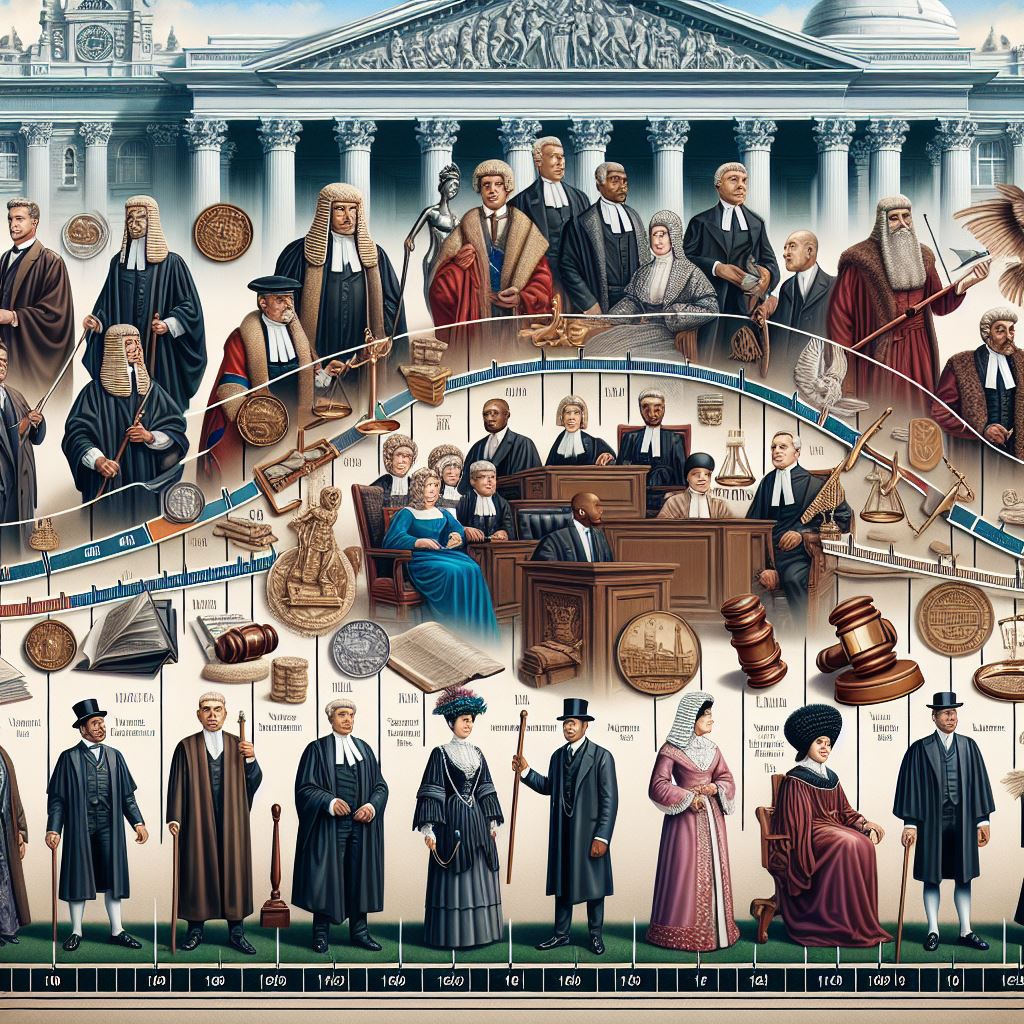In a bustling law firm in downtown Manhattan, an attorney prepares for a complex case. But unlike a decade ago, she's not drowning in mountains of paperwork or spending countless hours reviewing documents. Instead, she's working alongside an AI system that has already analyzed millions of pages of case law, identified relevant precedents, and highlighted key pieces of evidence. This is the new face of legal practice, where artificial intelligence is transforming how justice is served.
The Evolution of Legal Practice

The legal profession, steeped in centuries of tradition, is undergoing a remarkable transformation. The integration of AI into legal practice isn't just changing how lawyers work—it's revolutionizing the entire legal system. From contract analysis to predictive justice, artificial intelligence is making legal services more efficient, accessible, and accurate than ever before.
Consider the traditional process of legal research. Lawyers once spent hours or even days sifting through law books and case files to find relevant precedents. Today, AI-powered legal research platforms can analyze vast databases of legal documents in seconds, identifying patterns and connections that might escape even the most diligent human researcher.
Transforming Contract Analysis
One of the most significant impacts of AI in law has been in contract analysis and management. Large corporations often deal with thousands of contracts, each containing crucial terms, obligations, and deadlines. AI systems can now review these contracts with remarkable accuracy, flagging potential issues and ensuring compliance with regulatory requirements.
A major financial institution recently implemented an AI-powered contract analysis system that reduced review time by 80% while increasing accuracy by 90%. More importantly, it freed their legal team to focus on strategic work that requires human judgment and creativity.
Predictive Justice and Legal Analytics

Perhaps the most fascinating application of AI in law is predictive justice. By analyzing historical case data, AI systems can now predict the likely outcomes of legal proceedings with increasing accuracy. This capability isn't about replacing judicial decision-making—it's about providing lawyers and their clients with better insights to inform their legal strategies.
In France, several courts have experimented with AI systems that analyze past decisions to identify patterns in judicial reasoning. This has not only helped lawyers better prepare their cases but has also contributed to more consistent and transparent judicial decisions.
Access to Justice
The impact of AI extends beyond large law firms and corporate legal departments. AI-powered legal tools are making justice more accessible to ordinary citizens. Online platforms using AI can now help people understand their legal rights, generate basic legal documents, and even provide preliminary legal advice.
These tools are particularly valuable in areas where legal representation is scarce or expensive. A legal aid organization in California reported that their AI-powered platform helped them serve 40% more clients while reducing wait times by 60%.
Ethical Considerations
The integration of AI in legal practice raises important ethical questions. How do we ensure that AI systems don't perpetuate existing biases in the legal system? What are the implications for client confidentiality and attorney-client privilege? The legal community is actively grappling with these questions while developing frameworks for the responsible use of AI in law.
The Human Element

Despite the transformative power of AI, the human element remains crucial in legal practice. AI excels at tasks involving data analysis and pattern recognition, but it cannot replace the judgment, empathy, and ethical reasoning that are fundamental to the practice of law.
The most successful applications of AI in law have been those that enhance rather than replace human capabilities. As one senior partner at a leading law firm noted, "AI is not replacing lawyers—it's helping us be better lawyers."
Looking Forward
The future of AI in law promises even more exciting developments. We're likely to see more sophisticated applications of natural language processing in legal research, improved predictive analytics for case outcomes, and AI-powered tools that make legal services more accessible to underserved communities.
Key Insights
The integration of AI in legal practice represents a fundamental shift in how legal services are delivered. It's making the legal system more efficient, accessible, and transparent while allowing legal professionals to focus on the aspects of their work that require uniquely human capabilities.
As we move forward, the key to success will be finding the right balance between technological innovation and the fundamental principles of justice. The goal isn't to automate the legal profession but to enhance it, ensuring that justice is served more effectively and equitably in our increasingly complex world.
Remember: The future of law lies in the thoughtful integration of artificial intelligence with human legal expertise, creating a justice system that is both more efficient and more just.




